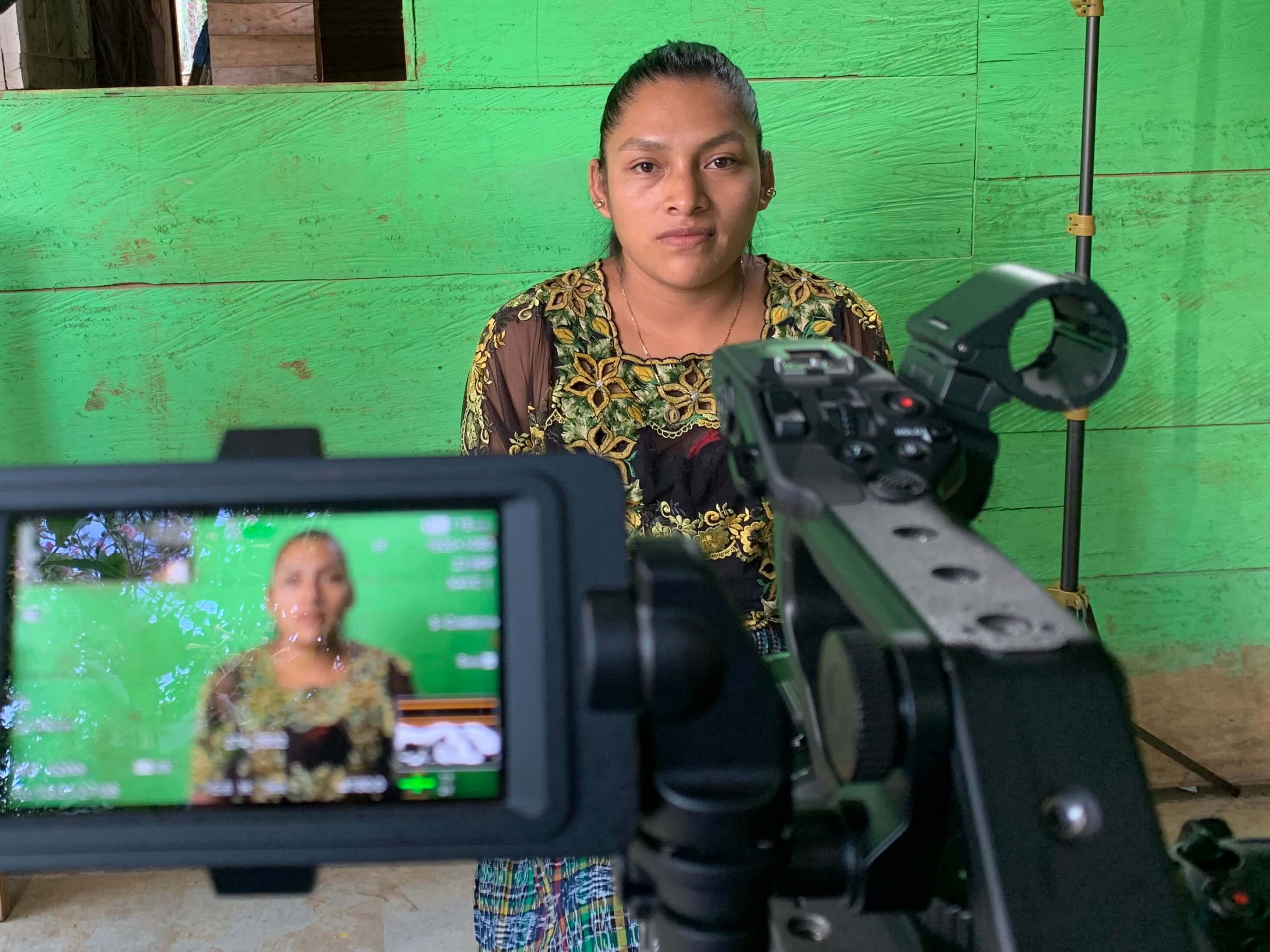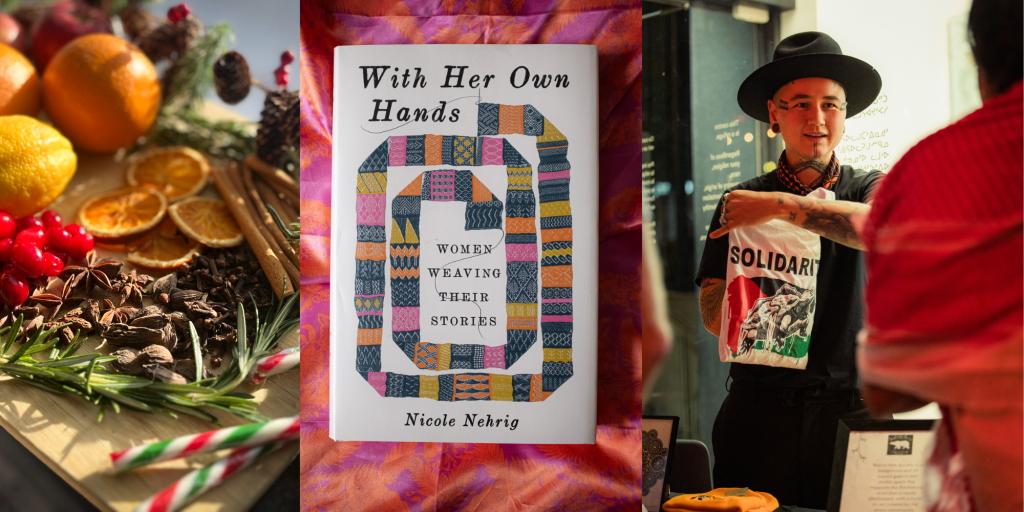Camino Verde Project Exceeds Targets for Indigenous Women’s Agricultural Enrollment
Camino Verde Project Exceeds Targets for Indigenous Women’s Agricultural Enrollment
I feel happy and proud to put what I've learned to use, Here in the hamlet of Camcal, we work the land, malanga, cassava, and banana, and thanks to Camino Verde, we were able to work.
About Camino Verde:
Transforming Women and Youth Livelihoods
Camino Verde, a significant five-year project that successfully ran from March 2019 to October 2024, was launched in the predominantly Indigenous north-central region of Alta Verapaz, Guatemala, the most economically disadvantaged area in the country. Before the project began, over 80% of the population lived in poverty, and only 7% of workers were women. As unemployed women face much higher rates of violence than those who work, in Alta Verapaz, domestic violence and femicide rates were among the highest in the country.
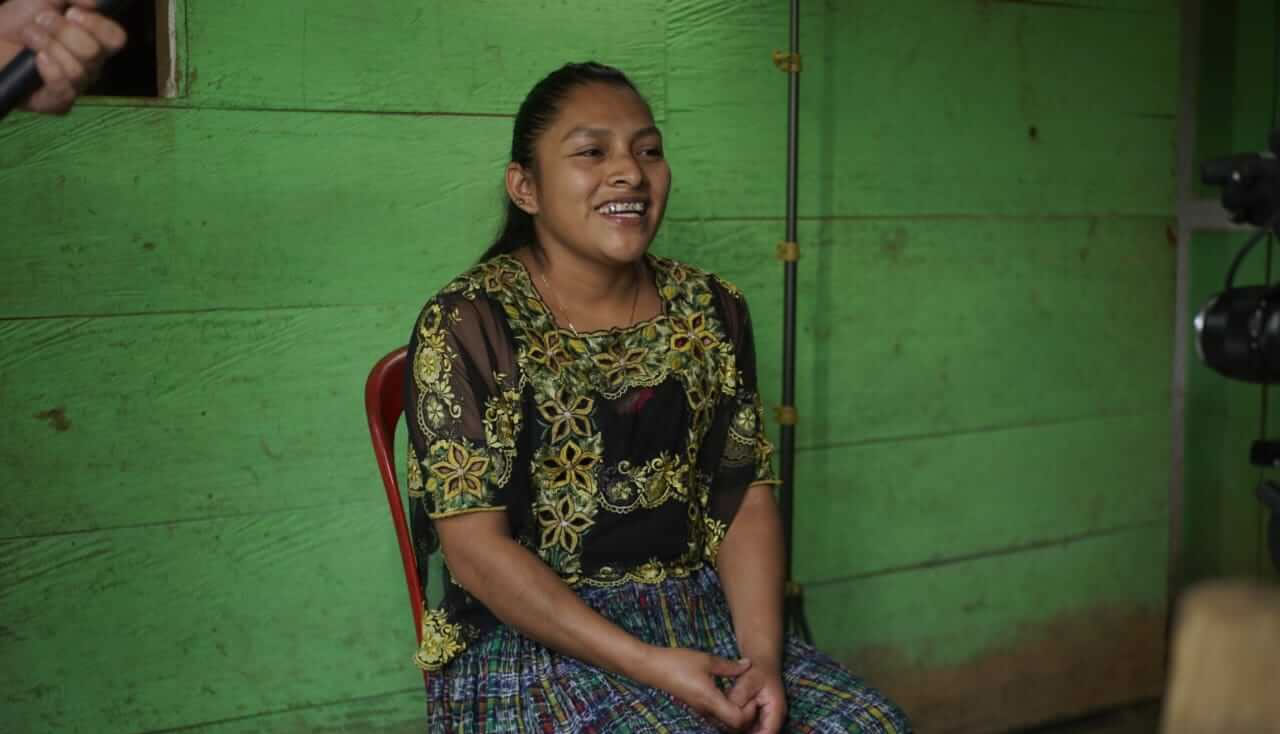
In response, Oxfam Canada partnered with five local organizations. It began a series of dynamic initiatives with a strong focus on championing gender safety and equality among the Maya Q'eqchi communities, including the construction of a women's shelter in Alta Verapaz to support abuse survivors. Promoting social, economic, and political empowerment was among the project's top priorities.
As a result, women and youth across the region have achieved the unwavering confidence, skills, and self-reliance to create sustainable and environmentally sound small-scale enterprises that thrive on clean and innovative technologies.
At the project closure, 97% of women involved in economic activities noticed significant improvements in the financial participation of Indigenous women and youth. Due to novel training opportunities, 70 businesses were launched—47 led by women and 23 by youth.
These flourishing enterprises are not only helping families and communities in these localities prosper economically but have helped women and youth carve a new path forward that allows them to secure leadership positions and embrace a new life free from violence and oppression.
Caal is one of the many women positively impacted by Camino Verde. Through the support of Oxfam Canada's strong alliances, she found the knowledge and training she needed to use her crops, such as malanga or taro to their maximum potential in a sustainable way that is in harmony with the lush acres of land on her property. Moreover, she's able to solely support her children in the aftermath of an abusive marriage. "I always look for ways to help my children advance," she says. Now I'm getting ahead. I won't quit or give up. Now I know how to move forward and want to keep learning."
The Power of Educating Women and Youth
Thanks to Camino Verde, female enrollment at the agroecology schools has risen sharply in the Alta Verapaz region.
While campesinos, or agroecology schools, combine the study of ancient Guatemalan farming techniques and traditions that promote sustainable solutions, ethnoveterinary schools treat and protect animal health through Indigenous healing methods.
In addition to the agricultural know-how, Camino Verde strategically incorporated topics on women's rights and economic participation in its campesino and ethnoveterinary workshops. For instance, a political training school with a socio-environmental focus, where women leaders were invited to participate.
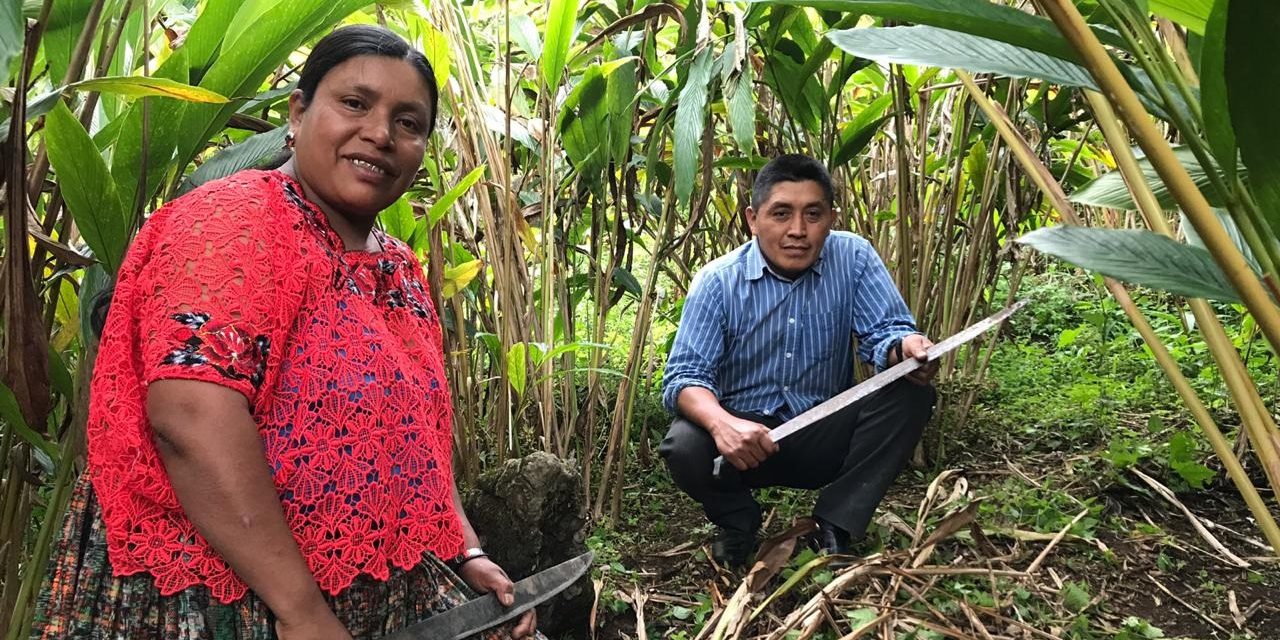
“One of the first things we learned is that women have the right to own land. We bought this land in my name. Only men could own land before,” explains Candelaria Xol from the municipality of Carchá. “In the training, I learned that as a woman, I can own anything.”
Moreover, this newly acquired knowledge and increased resources shared by women's collectives across Alta Verapaz uplifted their various communities by considerably accelerating crop yields and improving the quality of their agricultural products. Understanding the value of regional consumption of locally produced, environmentally friendly products, which offer high quality and can lead to healthy profits, was also strongly recognized.
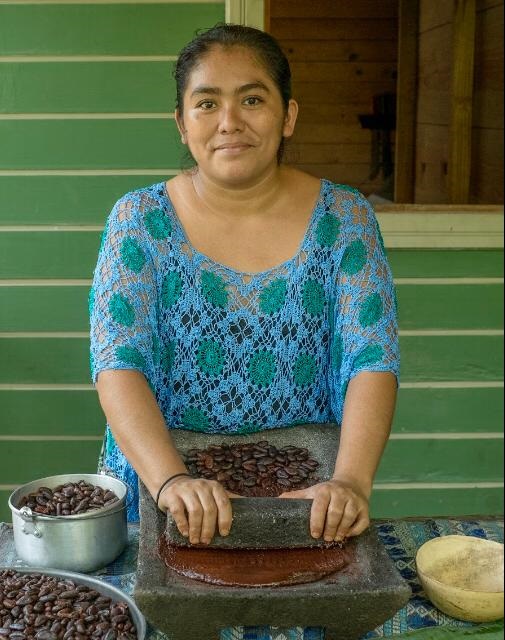
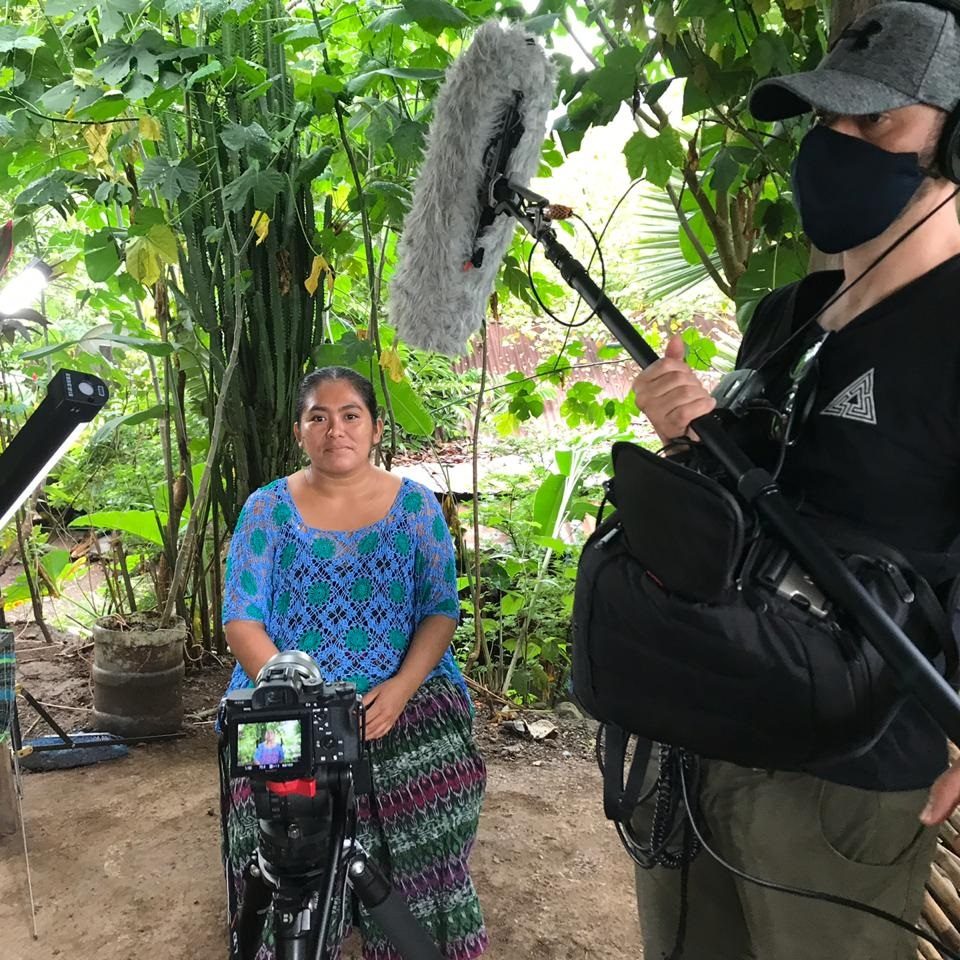
Elsa Pop, Founder of Julhalaw (Mother Earth), an economic initiative that produces and sells organic chocolate nationally and internationally, has significantly benefited from Camino Verde's training opportunities. As her business grows, she's helping other local startups to prosper by also purchasing cacao from neighboring initiatives and using a group of traditional weavers to package her chocolate. "We want to make a product that comes from here, and we manage ourselves," says Pop. "We don't want just to produce; we want to involve young women and single mothers, so they have a source of income."
When Environmental Stewardship Leads to Abundance
By the end of the project, 10,593 Indigenous people, including 7,191 women and 1,058 young women, participated in various agroecology workshops and learned essential environmentally sustainable production practices. These learned skills included crop propagation and diversification through climate-resilient actions. As a result, implementations made in these agricultural communities included rainwater harvesting for both consumption and production, creating organic fertilizers, practicing crop rotation, waste management, soil conservation, and more.
Consequently, due to their agroecology school training, 87% of all Indigenous women and youth leading economic initiatives expressed feeling control over the resources of their businesses. An example of one of many success stories is the creation of the Flor de Sepacay (or Sepacay Flower) economic initiative. This unique venture, consisting of five Q'eqchi' women from the Sepacay community, has brought economic prosperity, hope, and inspiration to the entire community.
This enterprising group produces organic honey and began receiving training with Camino Verde in 2020. To reduce the risk of contamination, they were trained on food quality and safety procedures for each stage of the honey production process. In addition, the group is now skilled in sustainably tending and caring for the delicate ecosystem surrounding the bee hives, including the forest, flowers, plants, and natural water sources that encompass the area.
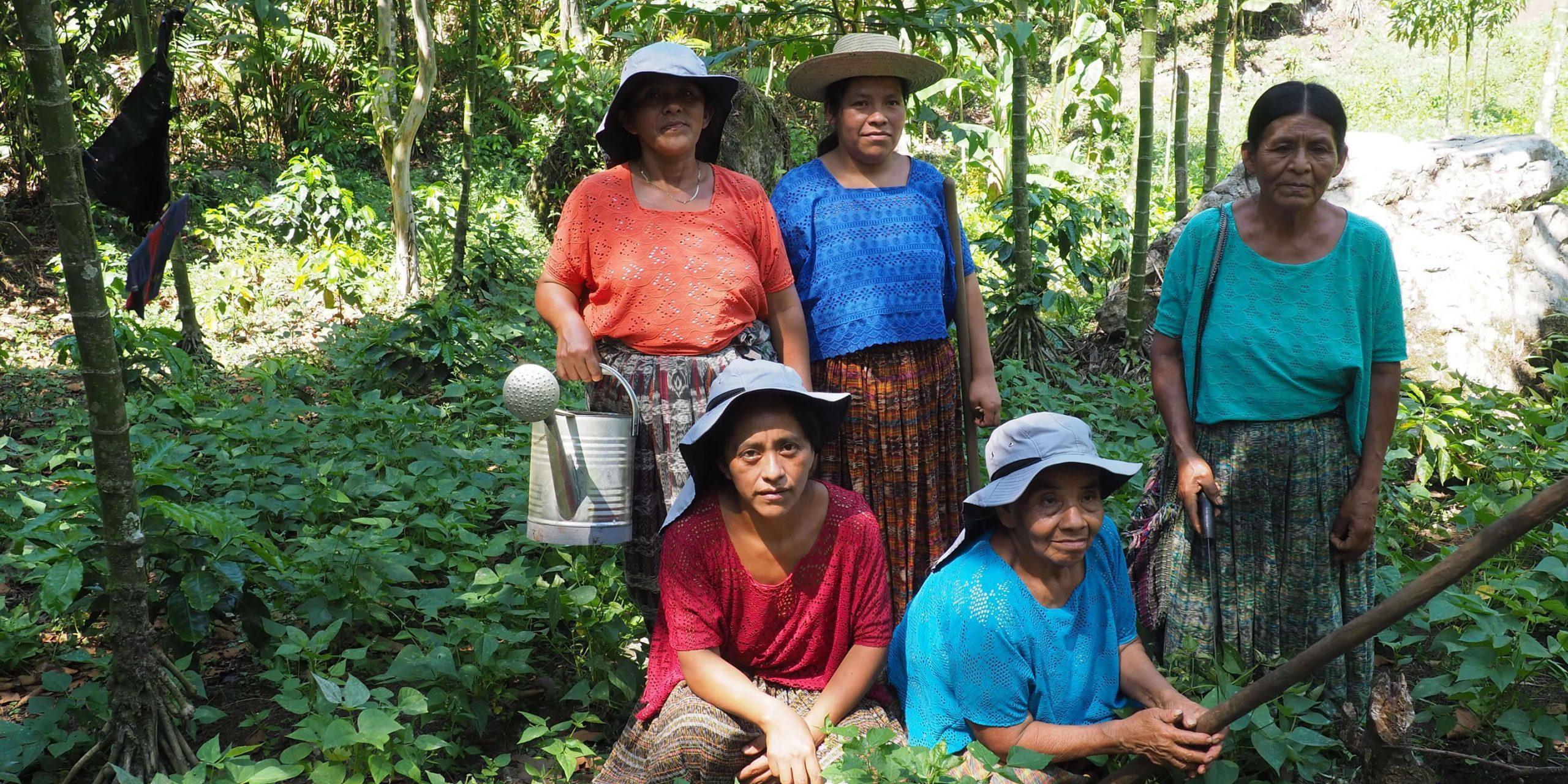
"We have always liked to be leaders and organize women in our community. Hand in hand with OXFAM, we have transformed our lives; they have supported us, trained us, and followed us on this path to success that we are walking," says the leader of Flor de Sepacay's economic initiative. "Thanks to the Camino Verde project training sessions, we've lost our fear of expressing ourselves in public."
How Customized Training Leads to Success
Adela Choc, a Q'eqchi' woman from the community of San Isidro, further exemplifies how equipping women and youth in the region with essential agricultural knowledge and skills can revolutionize livelihoods. When the Camino Verde project was introduced in her community, Choc eagerly enrolled in a campesino school led by the Asociación Probienestar en Acción Saaq Aach'ool Nimla K'aleb'aal (APROBASANK), where one of its key objectives include promoting agricultural diversification and conversion to organic agriculture. After a thorough assessment, the organization recognized the crucial advantages of establishing ethnoveterinary schools specifically customized for women.
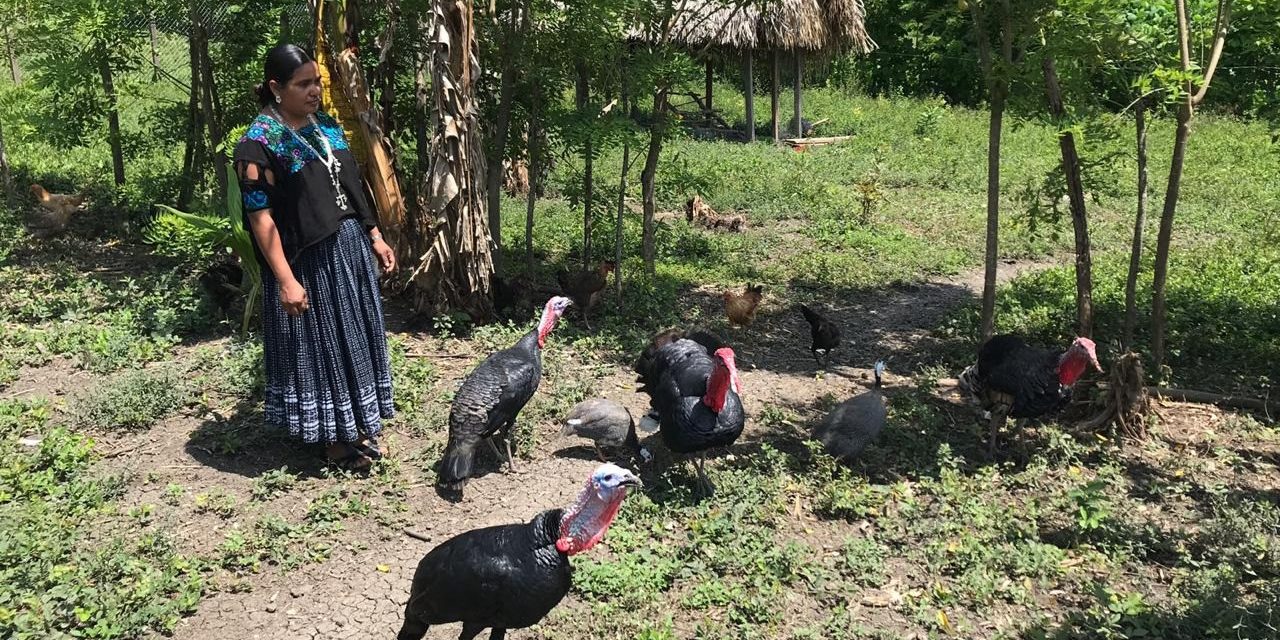
In addition to focusing on women agricultural producers, it was essential for them to partner with the Asociación de Mujeres Nuevo Horizonte (ANH). One of the association's many agendas is providing education on preventing violence against Indigenous women and girls.
After completing the intensive campesino and ethnoveterinary education programs, Choc signed up for the campesino contest and won first place. The campesino contest is an annual tournament where producers compete for cash prizes. The purpose is to motivate Indigenous communities to retain their land rather than sell it for palm oil production. By offering incentives, the event encourages these communities to adopt diversified and agroecological techniques that enhance food security for their families, provide a steady income, and support a healthy ecosystem.
Due to her achievement, she now plays a vital role in the Aj Awinel Producer's Network (AAPN), which has worked tirelessly to allocate budgets to encourage and strengthen women's economic empowerment. As a result of her induction into the network, she has sharply increased her production of eggs and other produce, such as different types of fruits, herbs, legumes, and more, making her a leading supplier in her hometown. Plus, she built a training centre for other women in the area to pass on the expertise she acquired through her recent education.
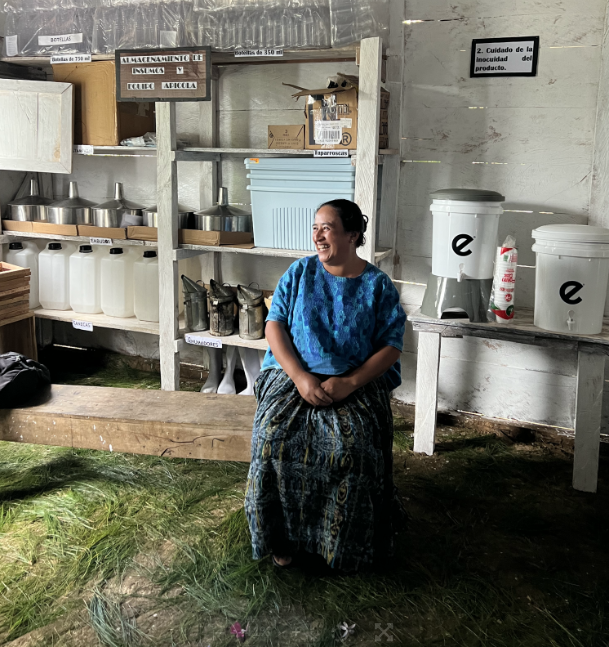
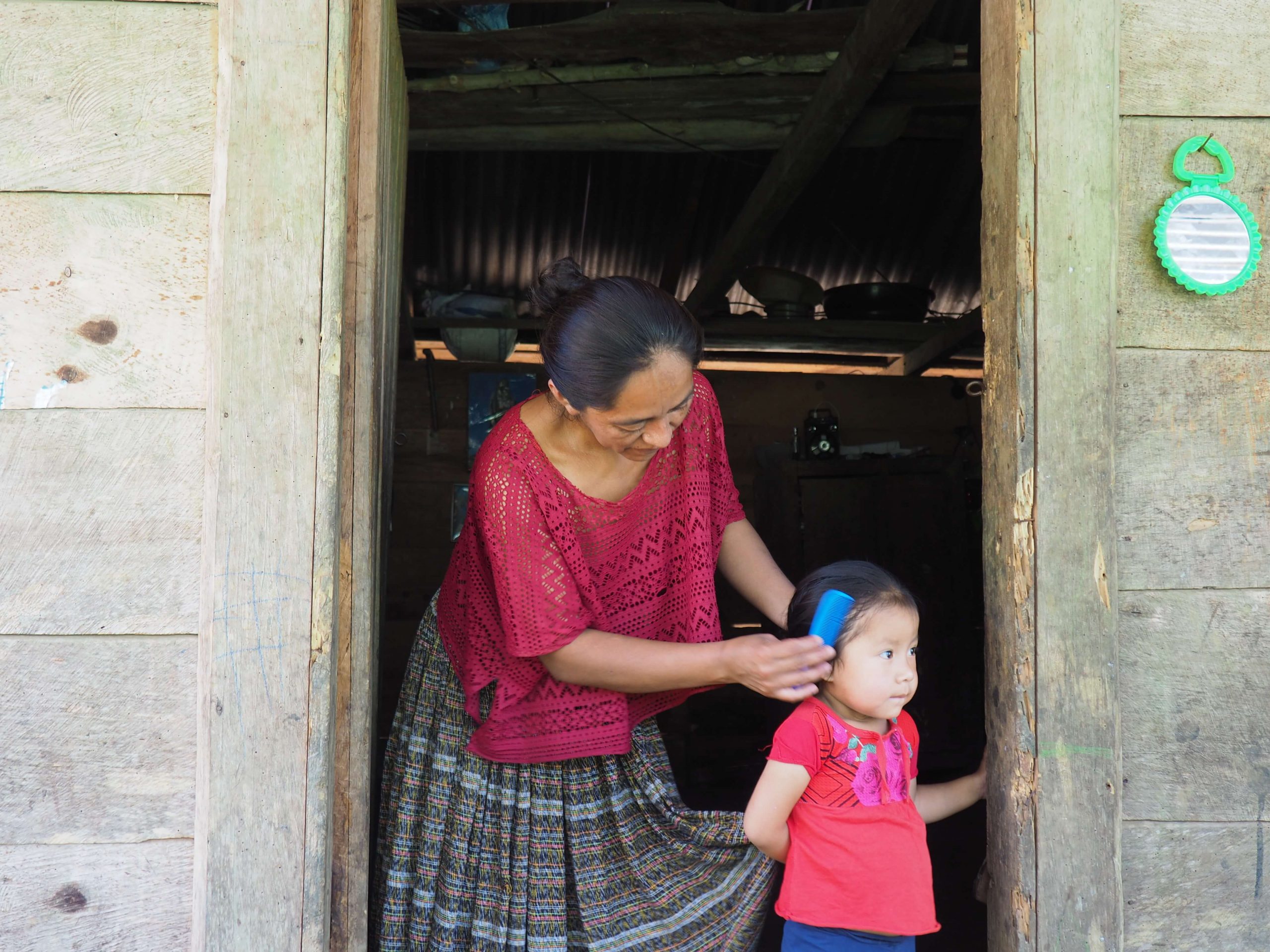
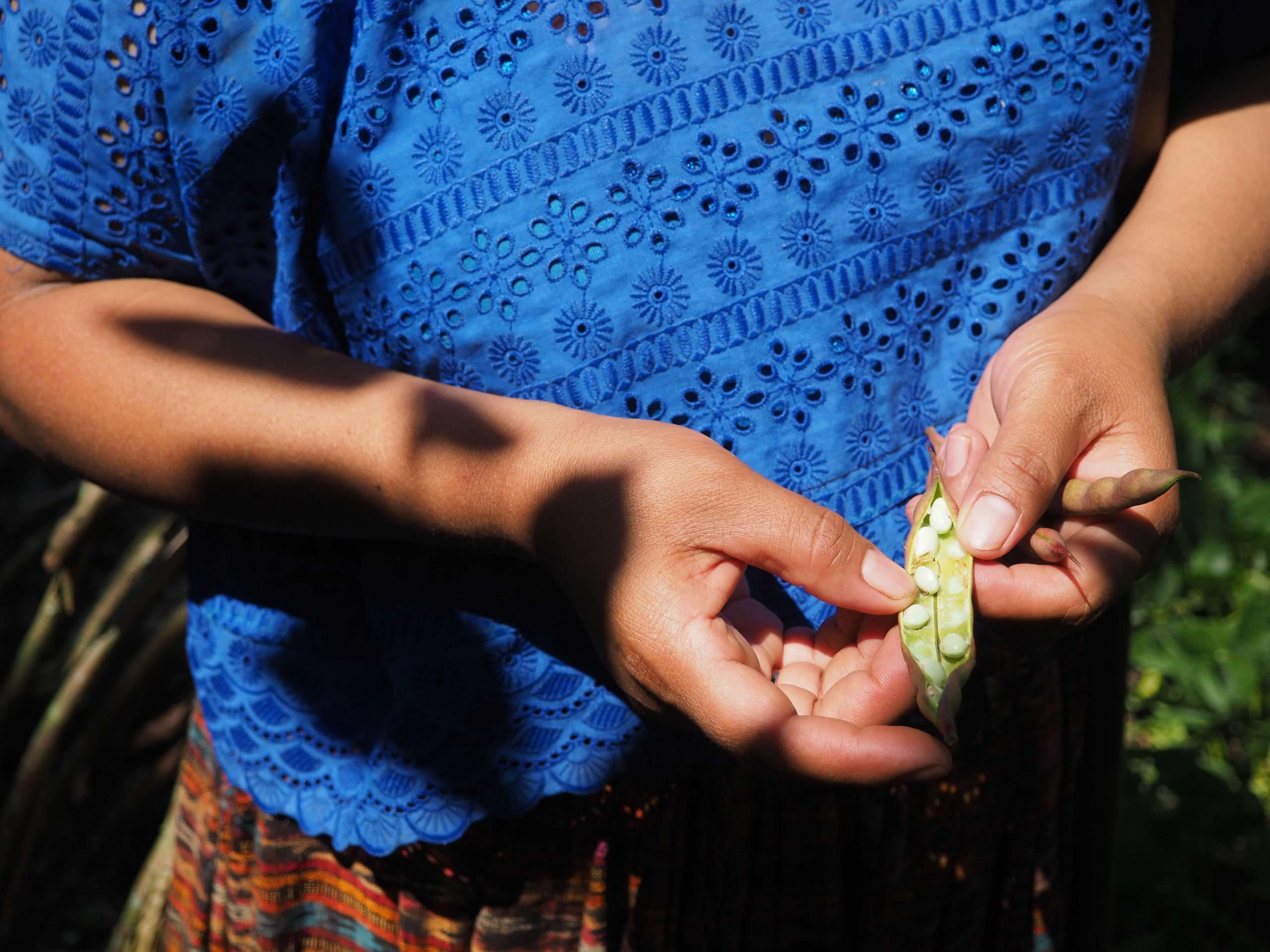
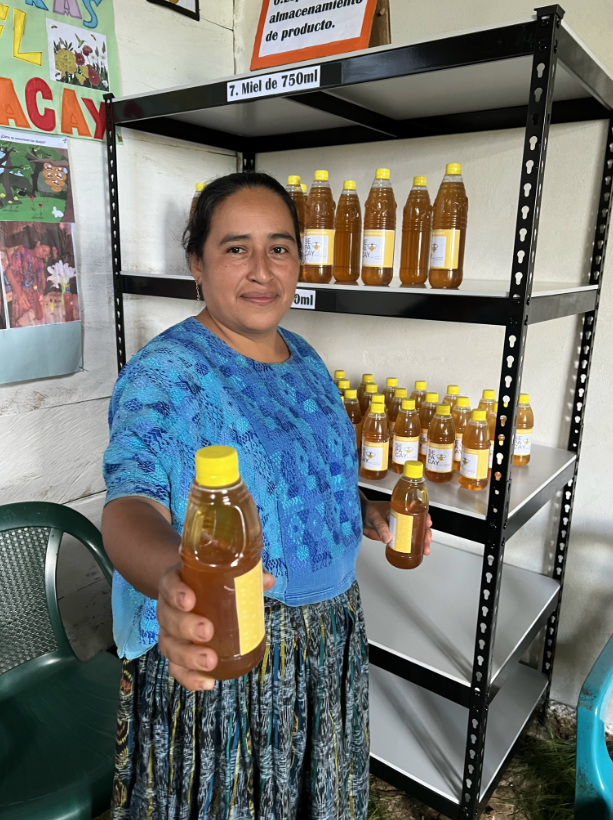
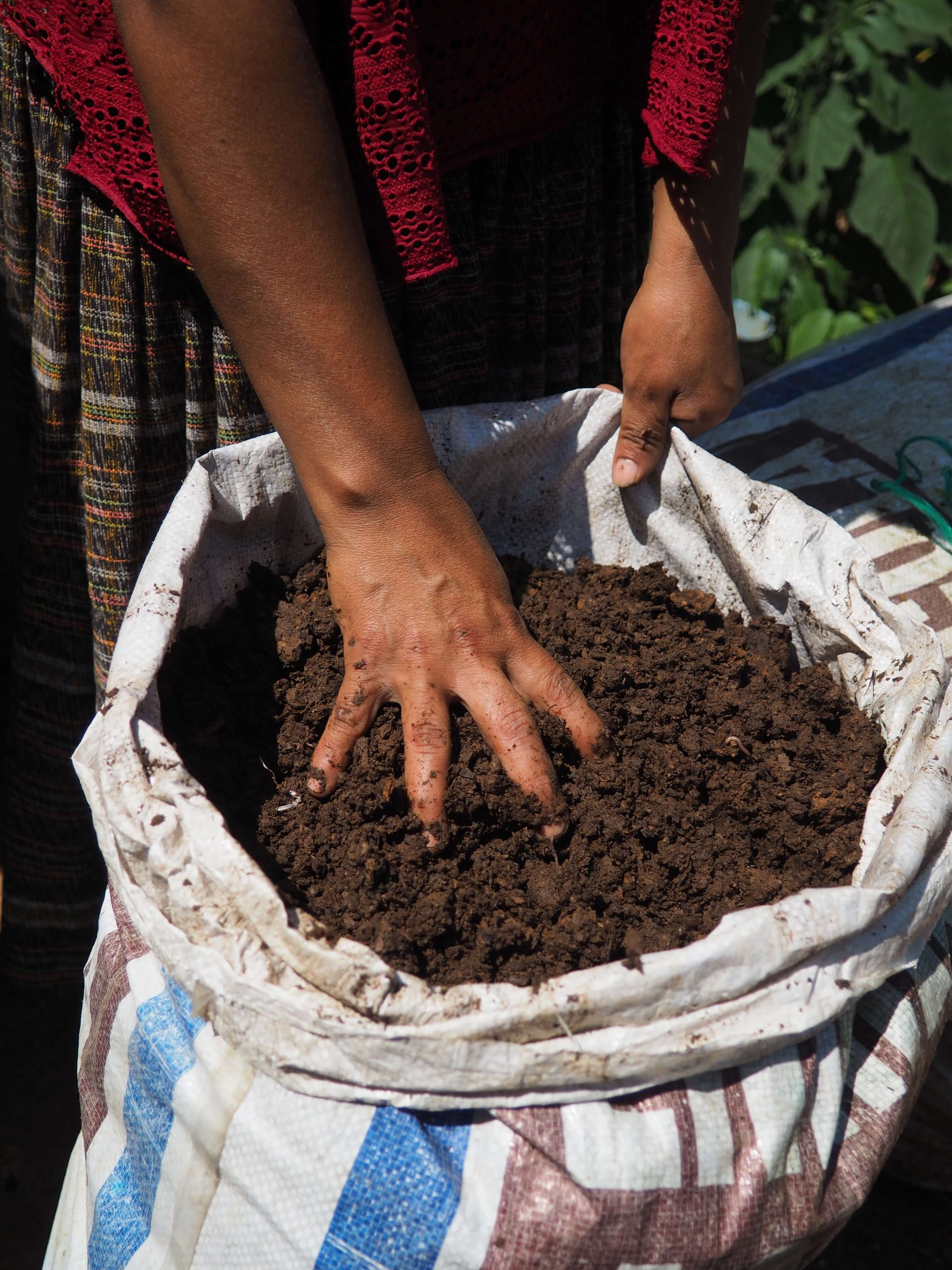
I feel like I've moved ahead; I've grown. But still, I dream of improving in the future, "Being a producer is a good thing. It's being an example for my community. If I hadn't had the opportunity to receive training, I think I wouldn't be where I am today. I feel thrilled because I have everything.
